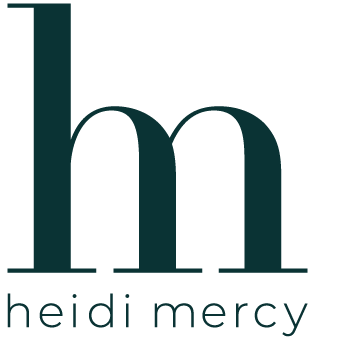CONTEXT:
Yggdrasil is a project carried out in partnership with the global design studio Idean.
The challenge: based on the principles of eco-design, imagine the retail of tomorrow at IKEA.
Our problematic: how can we integrate the local without distorting the core of IKEA's business model, which is based on globalisation?
CONCEPT:
To answer this question, we imagined a new range of furniture made of local wood that we called Yggdrasil which is the name of the World Tree in Nordic mythology. Just like a Lego, Yggdrasil is a unique piece of wood (therefore easily reproducible anywhere in the world), allowing to create an infinity of different furniture. Its production process is simple, clear and allows the user to consume in a more eco-responsible way and to be an actor of its ecological commitment.
TEAMMATES:
Céline Favre - Claire Anguenot - Hermine Ancel
Yggdrasil is a project carried out in partnership with the global design studio Idean.
The challenge: based on the principles of eco-design, imagine the retail of tomorrow at IKEA.
Our problematic: how can we integrate the local without distorting the core of IKEA's business model, which is based on globalisation?
CONCEPT:
To answer this question, we imagined a new range of furniture made of local wood that we called Yggdrasil which is the name of the World Tree in Nordic mythology. Just like a Lego, Yggdrasil is a unique piece of wood (therefore easily reproducible anywhere in the world), allowing to create an infinity of different furniture. Its production process is simple, clear and allows the user to consume in a more eco-responsible way and to be an actor of its ecological commitment.
TEAMMATES:
Céline Favre - Claire Anguenot - Hermine Ancel
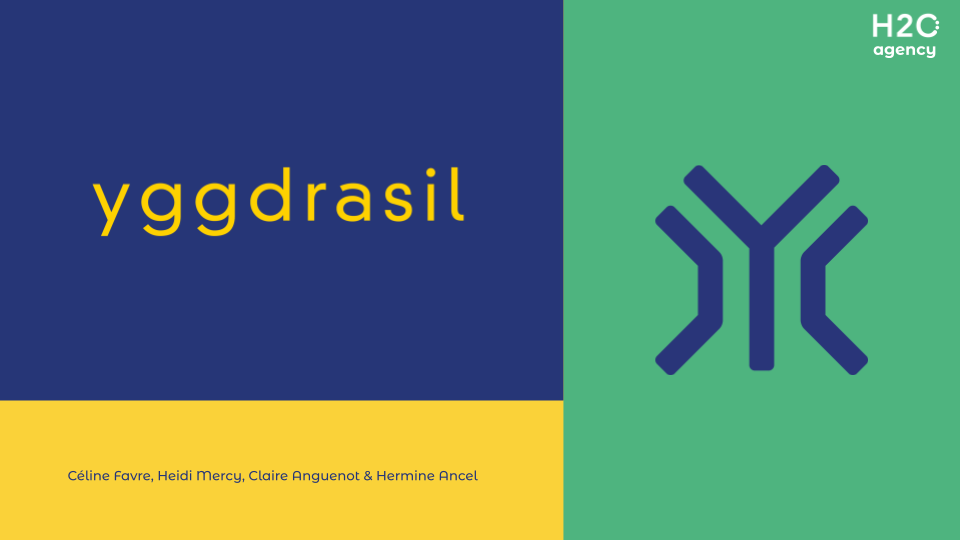
Welcome to Nordic mythology...
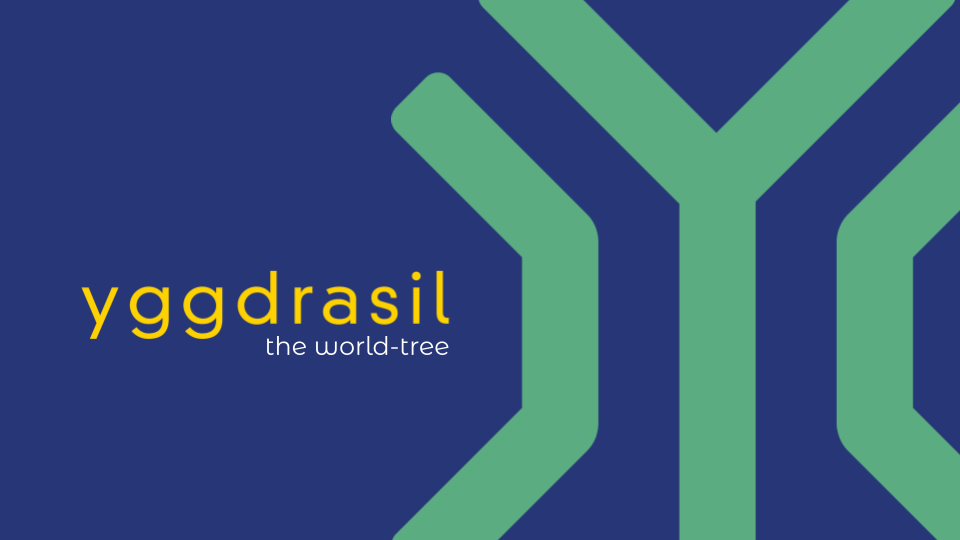
...and welcome to Yggdrasil, also called the World Tree. This tree supports and connects nine worlds, including the realm of humans and gods.
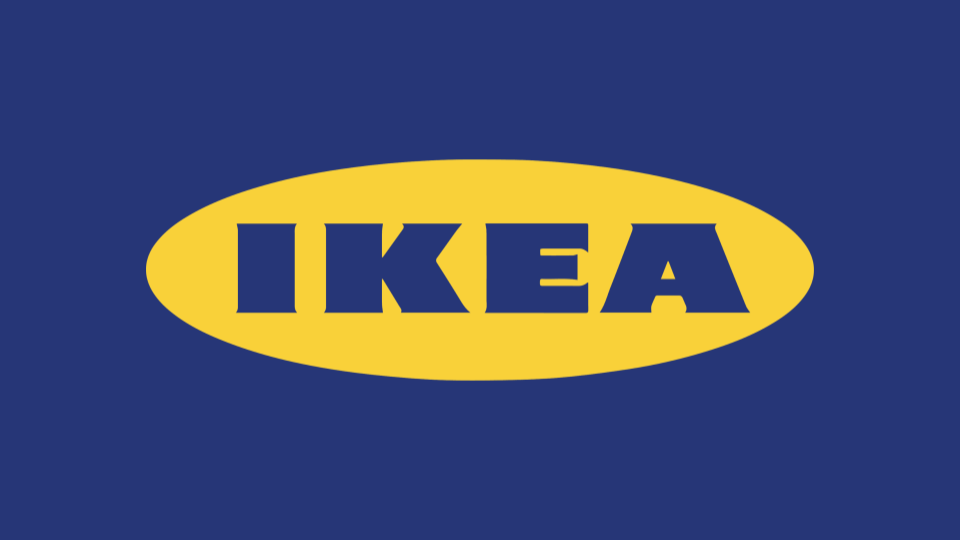
On our way, we crossed the path of representatives of the brand IKEA.

Established in more than 50 countries around the world, IKEA's question was "How to integrate the local without distorting the core of IKEA's business model, which is based on globalisation?
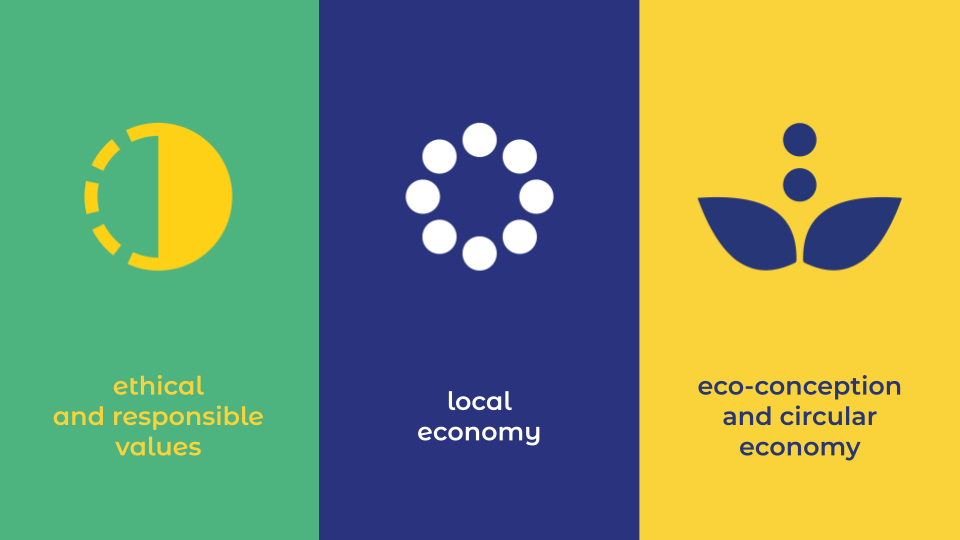
The keypoints of this problematic are: The local economy, which favours the actors of its own region as well as local products and materials. Eco-design, the principle of which is to reduce the environmental footprint by acting with precise graphic choices, especially in packaging and printing, but also by thinking of reducing transport methods with short loop systems. The circular economy aims to design and produce without waste, wasting as little raw materials and non-renewable energy as possible. It is a sustainable model in which "nothing is lost". Thinking local also means thinking ethical and responsible. It is important for a brand to be transparent to its consumers. To do so, it is necessary to be able to know the origin of the products that one buys, to know who has participated in its manufacture and under what conditions.
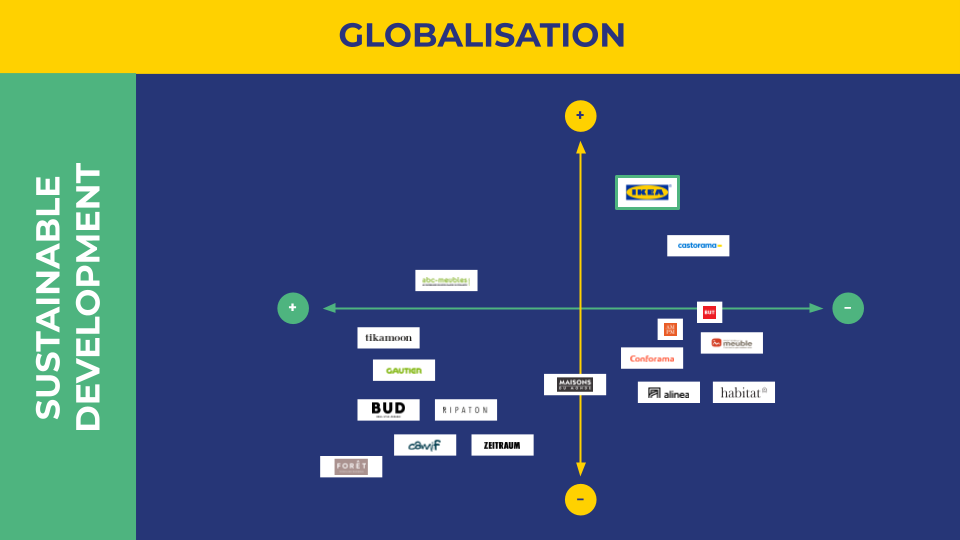
We have observed the strategy of IKEA's competitors according to two criteria: their globalisation and their positioning in relation to sustainable development. We can see that IKEA is currently very globalized and still not well positioned in terms of sustainable development.
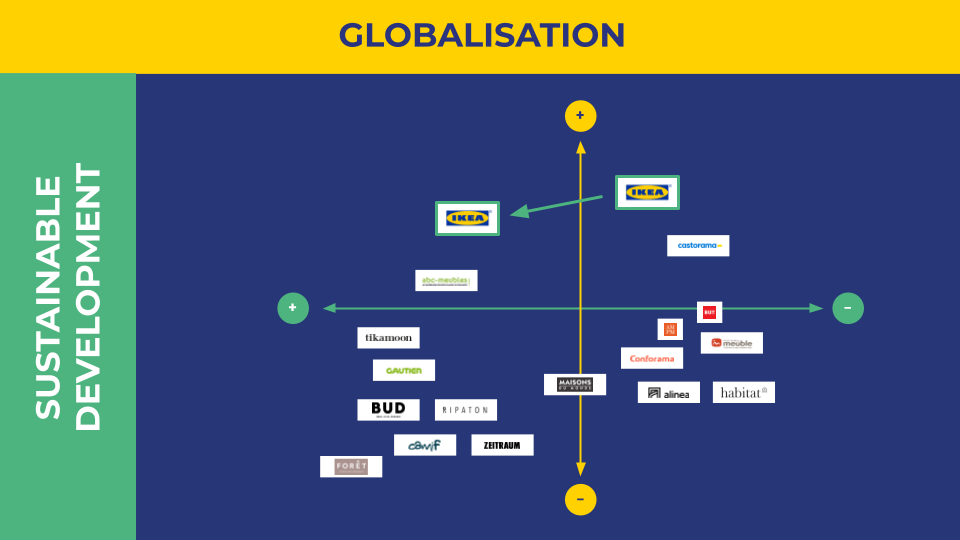
Our aim is therefore to reposition it towards more local while maintaining its globalisation and integrating a sustainable development aspect.

To better understand the problems related to our subject, we interviewed eleven people. They ranged in age from 21 to 34 years old, and had very different profiles, such as students who are used to moving regularly, or young parents who want the best for their children.
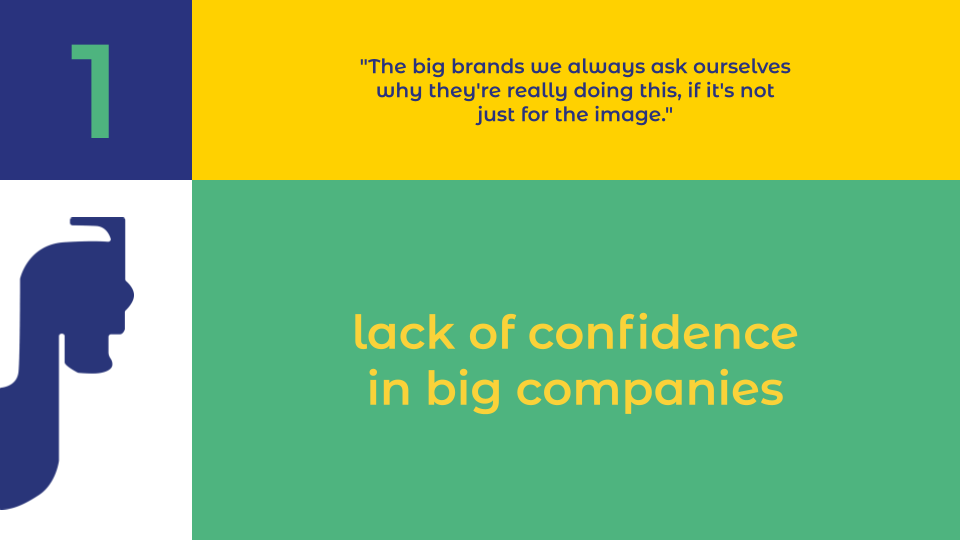
From these interviews, we have retained 4 insights: Firstly: many of them lack confidence in the big companies. They often wonder if environmental actions are not just greenwashing.
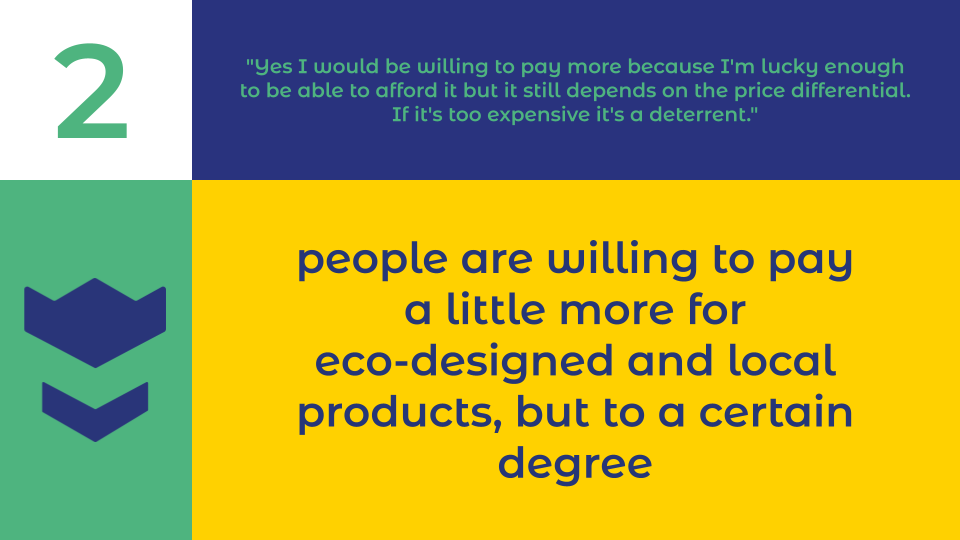
Secondly, we have realised that people are willing to pay more, to a certain point of course, for eco-designed and locally produced products.
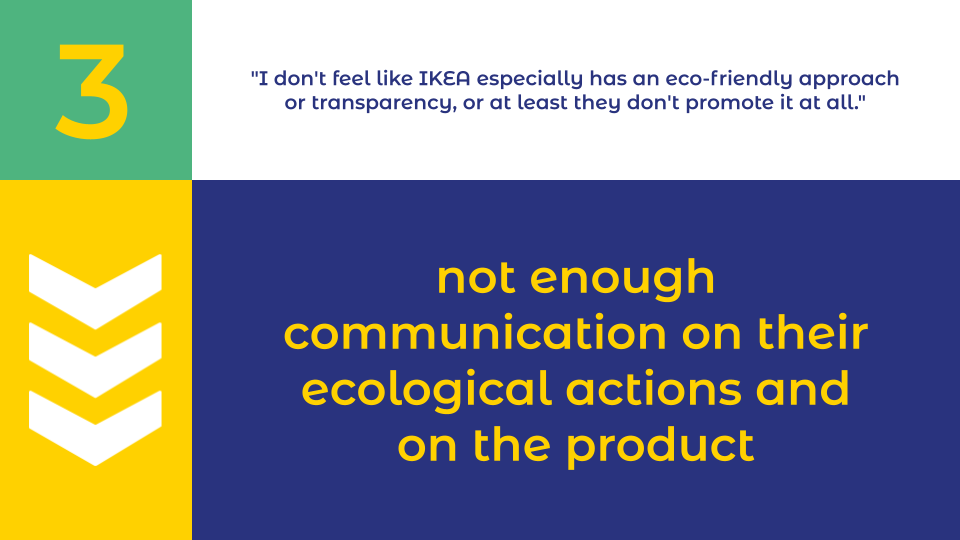
Thirdly, Ikea has a good brand image in general, but people don't feel that IKEA communicates about its ecological actions and don't know where their products come from. This creates an image of a brand that does not really care about its ecological impact, which can be negative.
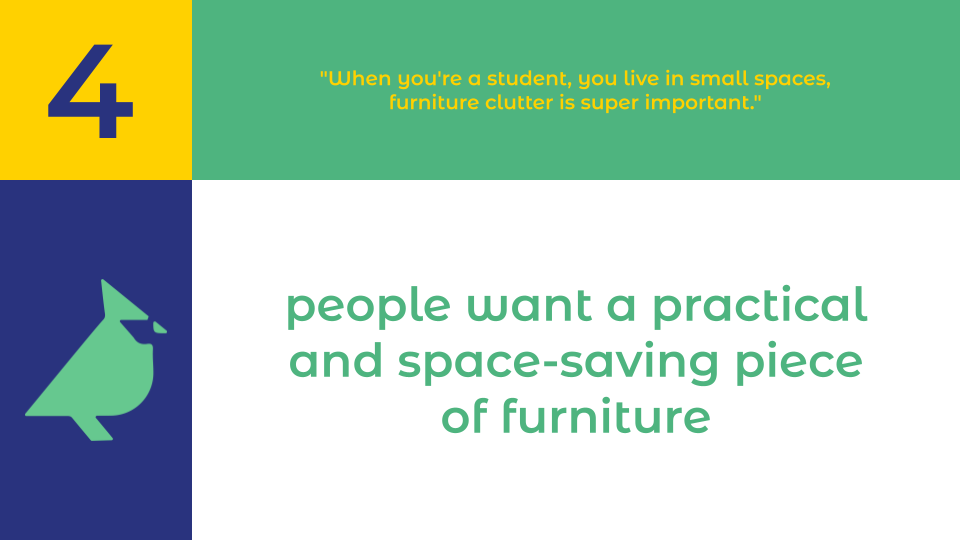
Finally, it was noted that people like Ikea because their furniture saves space and optimises space.
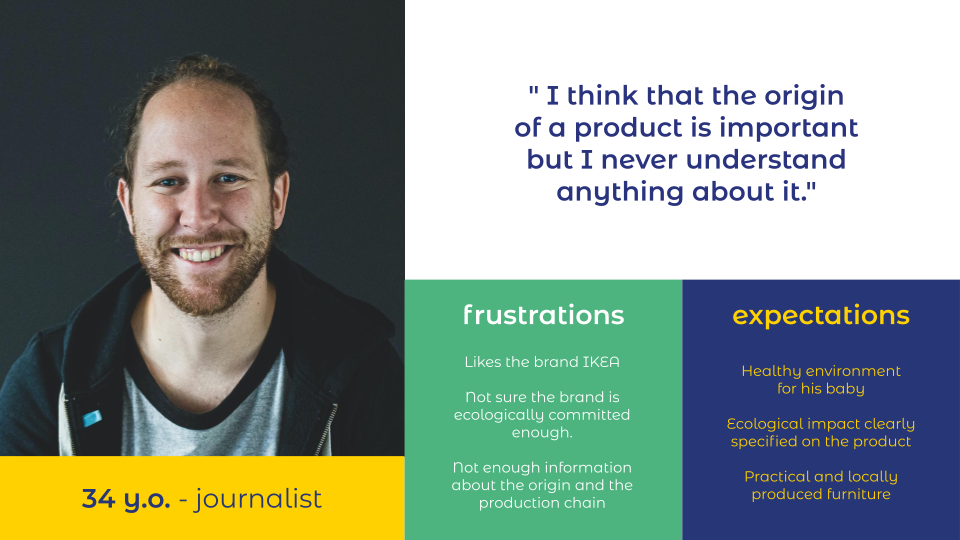
This is Leo, a 34-year-old man. Leo has just moved in with his wife who is about to give birth to their first child. His ambition is to find the best for his child. The baby's room is almost ready, only a shelf is missing, but the fact that he is concerned about his environmental impact makes it difficult to buy.
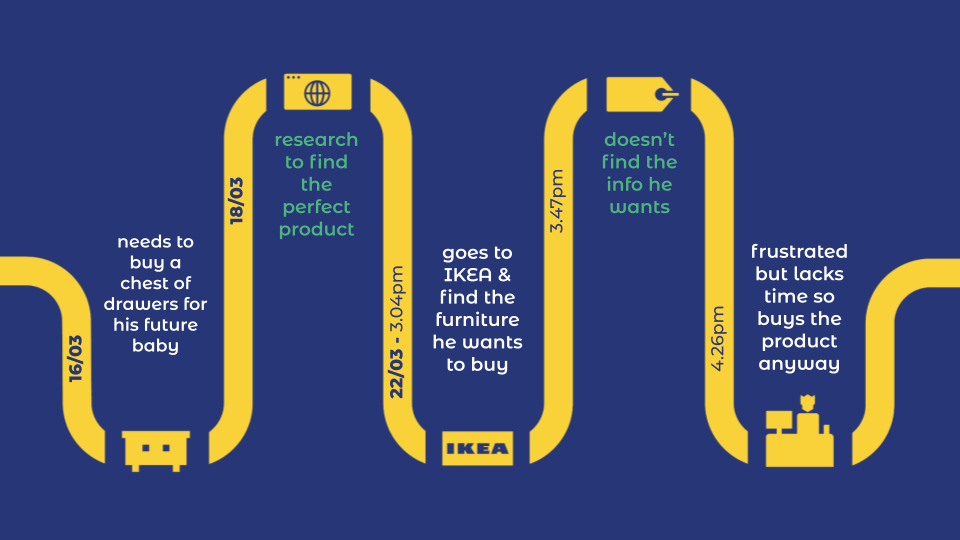
Leo needed to buy a shelf for his baby's room. He started by searching the internet to find the best product, and after scouting he went to an IKEA shop to see the shelf of his dreams. He couldn't find the information he wanted, where the wood came from, the production line, etc. Frustrated, he had to buy it anyway, as he has no time left with the birth approaching.
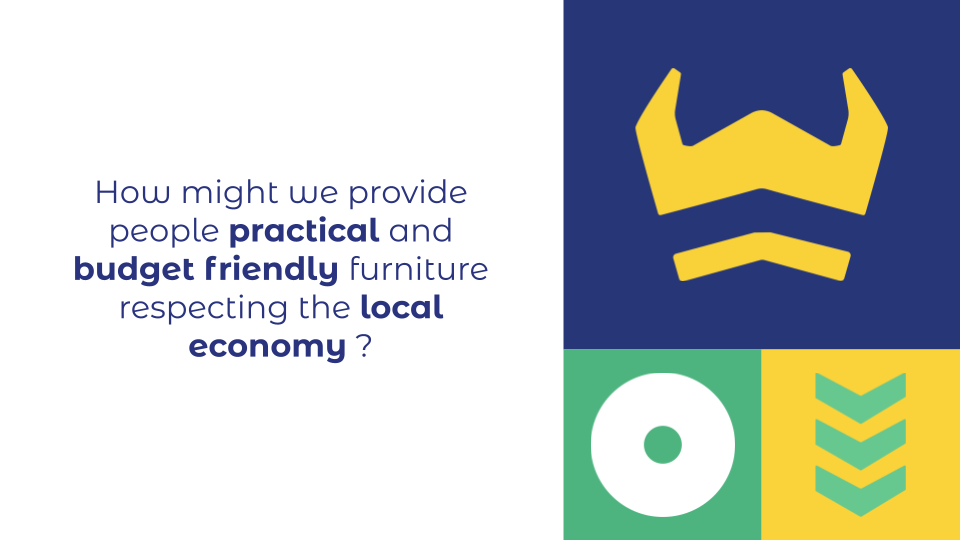
Leo is frustrated not to have an ethical and responsible piece of furniture. He would like his shelf to be practical but at a reasonable price. So we asked ourselves how might we provide people practical and budget friendly furniture respecting the local economy ?

It is to answer this question that we imagined the Yggdrasil furniture range, in reference to the World Tree that everyone venerates and protects in Nordic mythology.
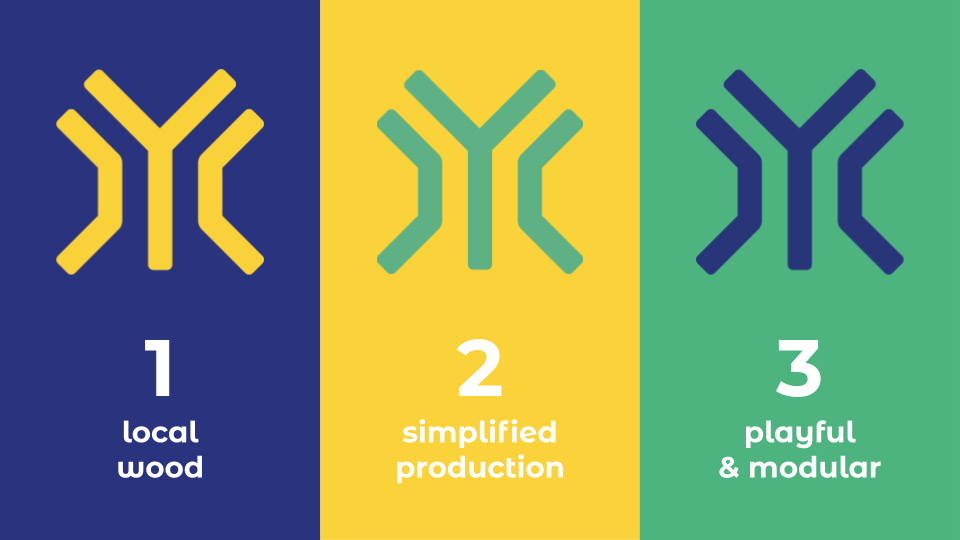
Our vision can be divided into 3 parts: local wood, simplified production, modular and fun furniture.
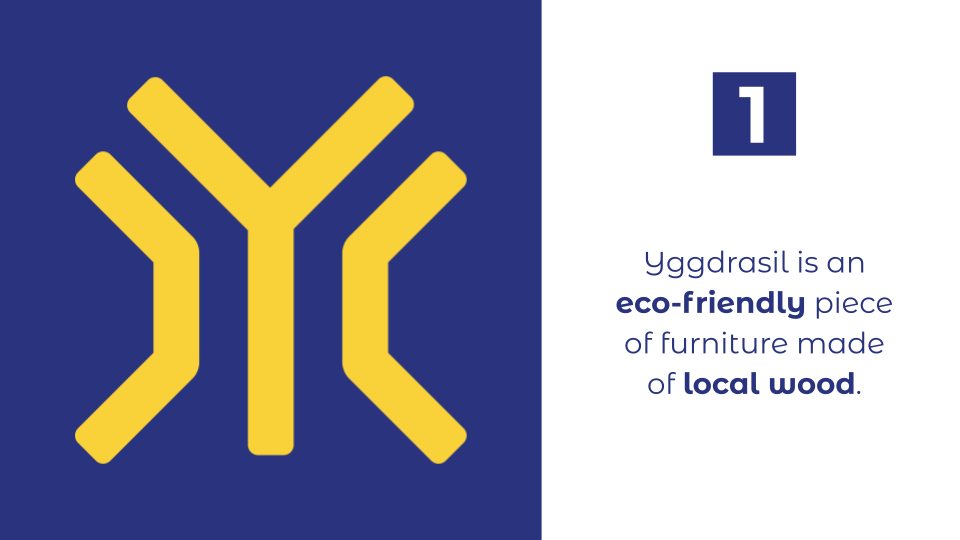
Firstly, Yggdrasil is an eco-friendly piece of furniture made from local wood.
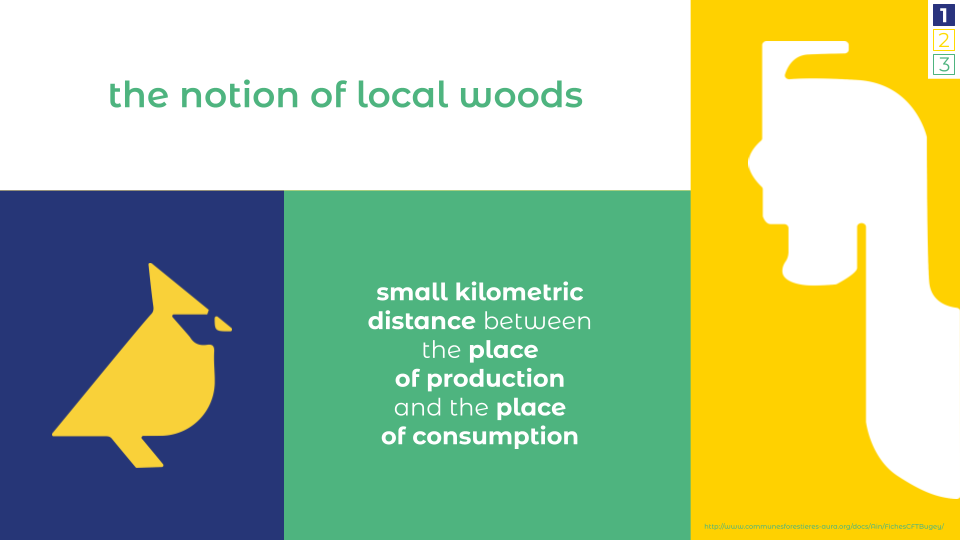
There is no clear and simple definition of the term "local", but it is generally agreed that local implies a short distance between the place of production and the place of consumption.
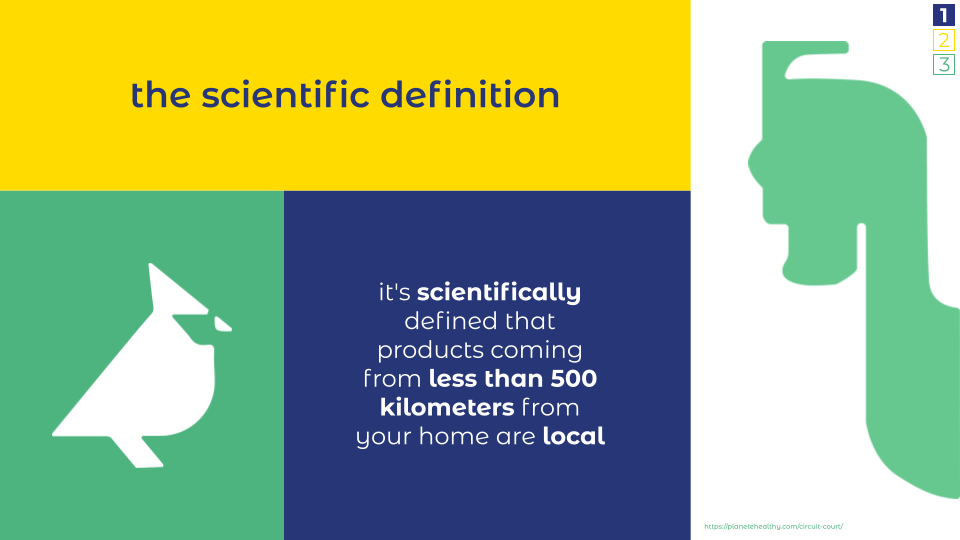
-This short distance is scientifically defined as a product coming from less than 500km from home.
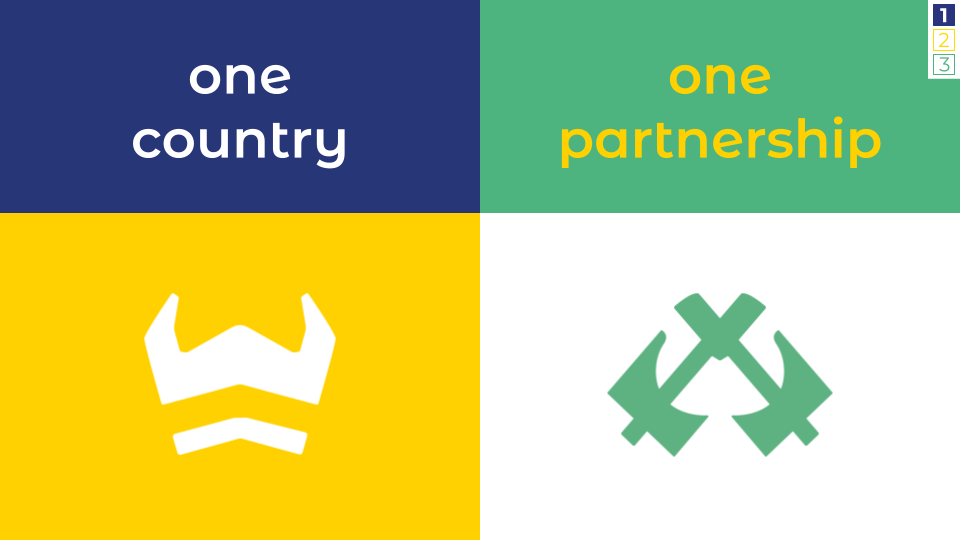
In its quest for local wood, Yggdrasil therefore relies on one partnership by country.
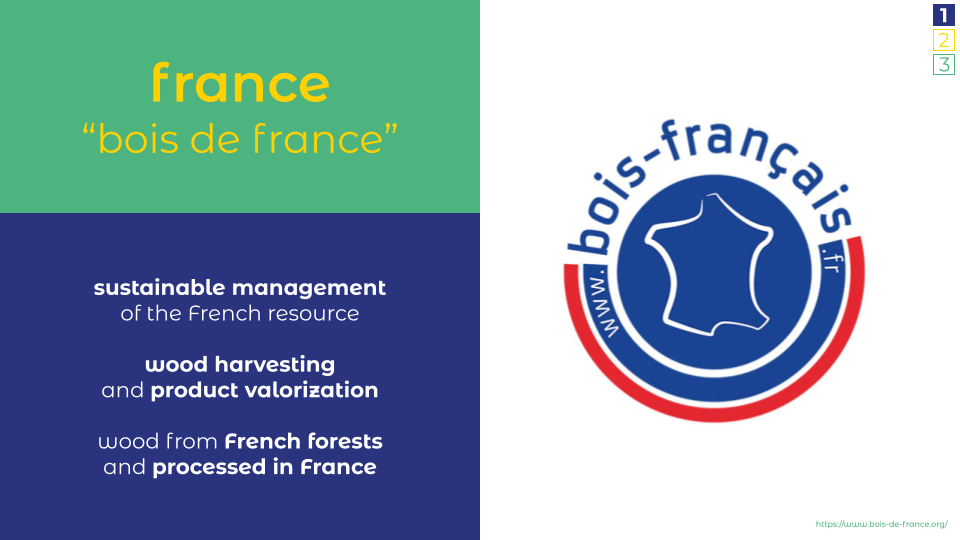
In France, for example, the brand "Bois de France"promises sustainable management of resources, with wood from French forests and processed in France.
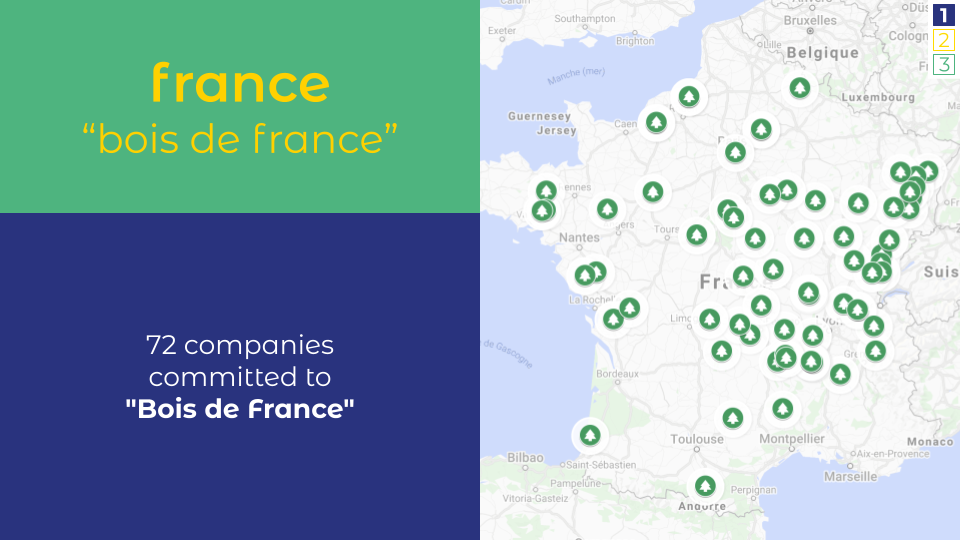
As you can see on this map, "Bois de France" is already working with 72 companies in the French wood industry.
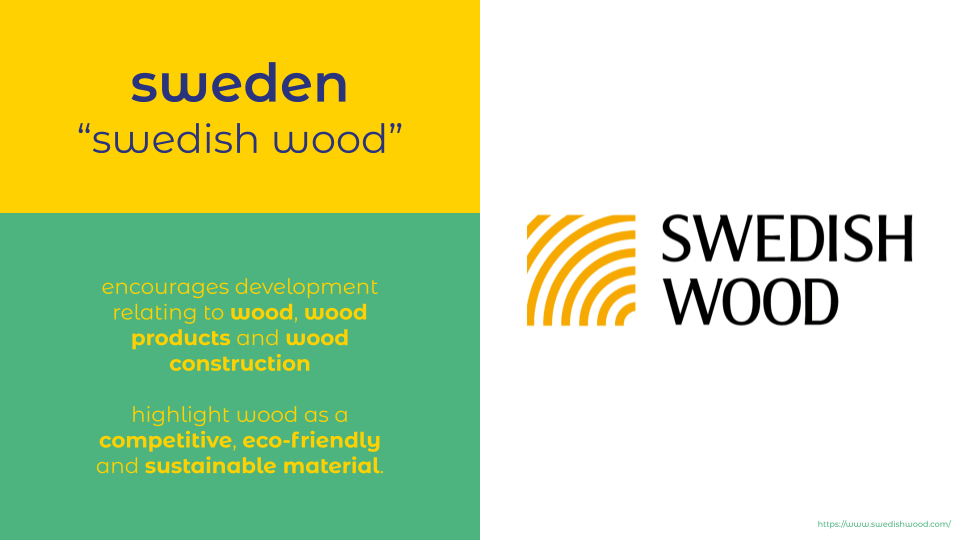
Let's take another example. For Sweden, we found the company "Swedish Wood", which has the same values of wood and local production as "Bois de France".
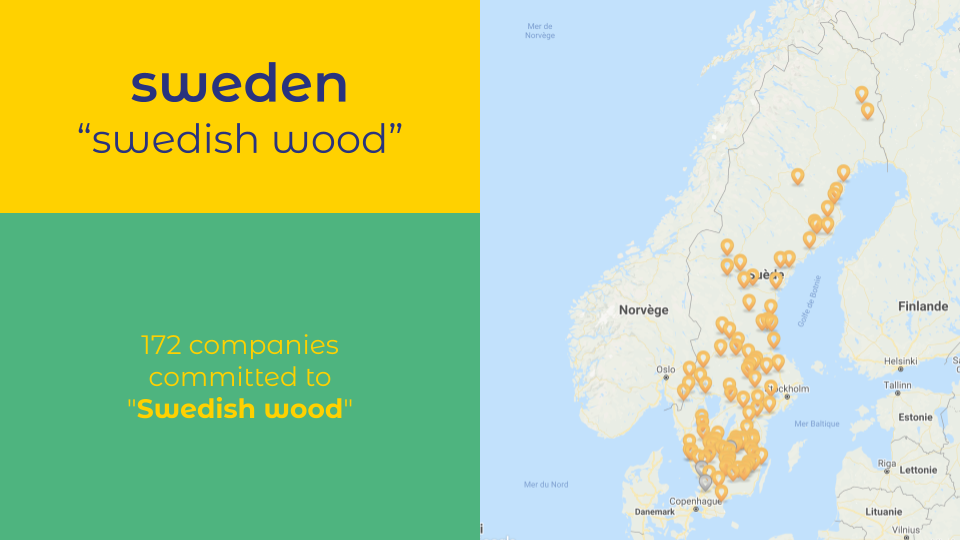
Swedish wood works with 172 companies in the wood industry in Sweden.
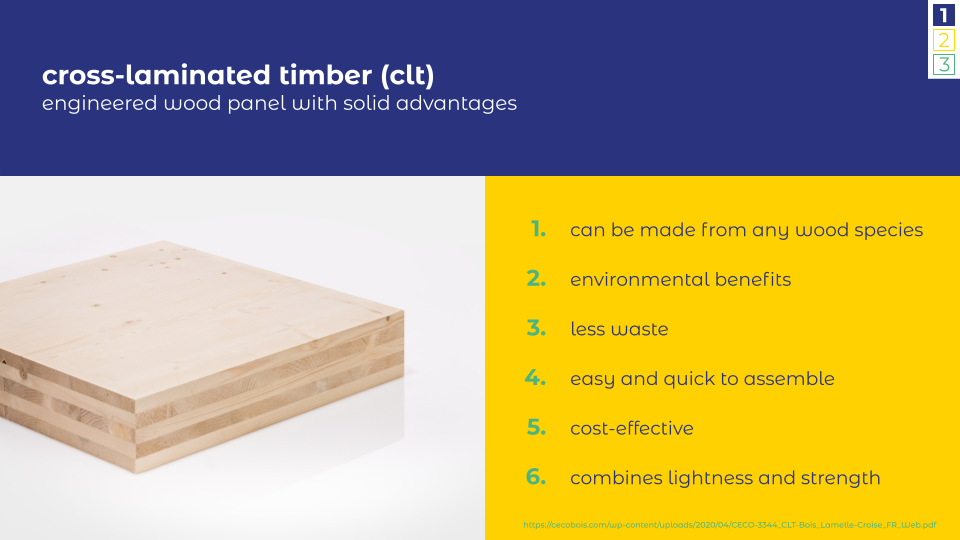
According to the advice of a wood specialist, the most suitable material for our furniture is CLT (Cross Laminated Timber), which is a light and very strong material that can be extracted from any kind of wood, thus allowing the use of local wood in any country. It is very easy to produce and there is very little waste in its production, making it both a very economical and environmentally friendly solution.
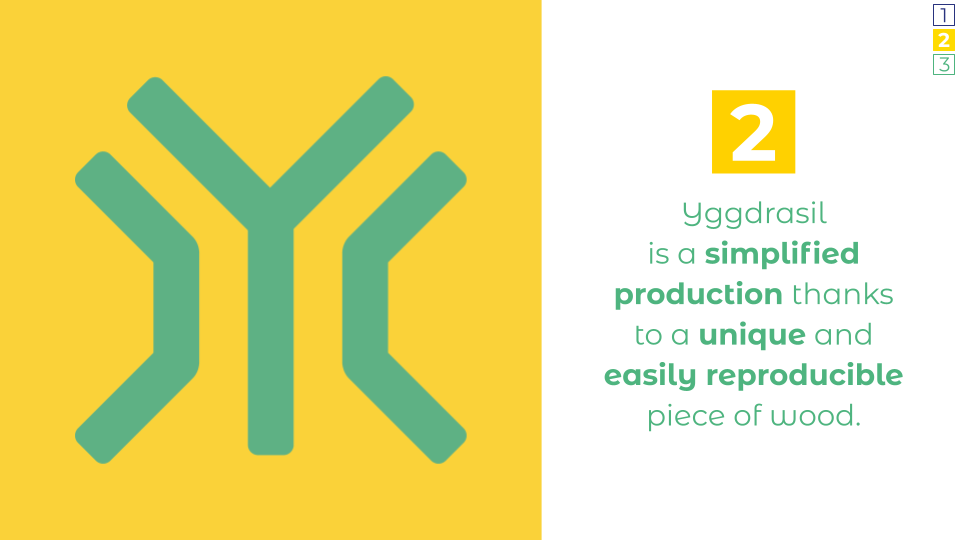
Secondly, Yggdrasil is a simplified production thanks to a unique and easily reproducible piece of wood.
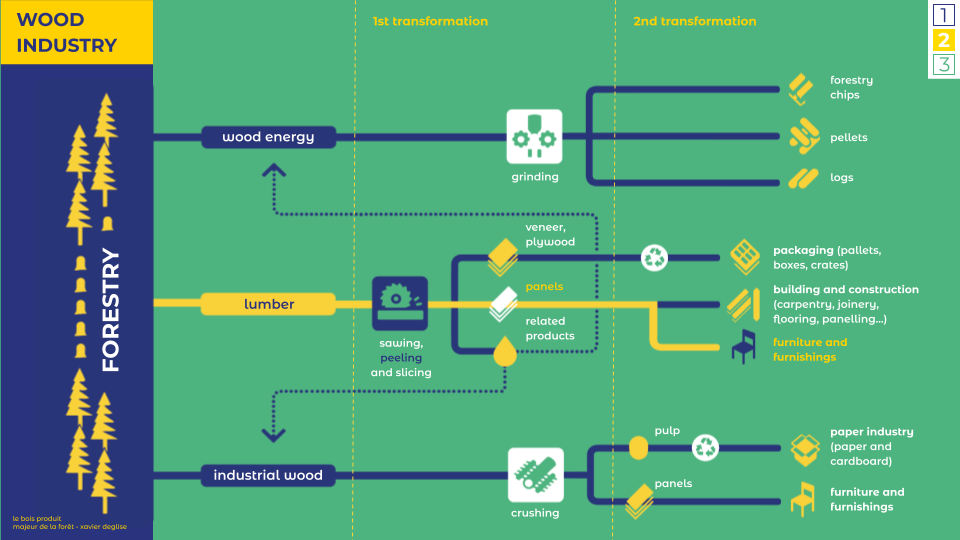
Our production is as direct as possible. The wood comes from forestry operations. It is peeled and then processed into panels to build the furniture. This is one of the shortest routes that can be achieved in the wood industry.
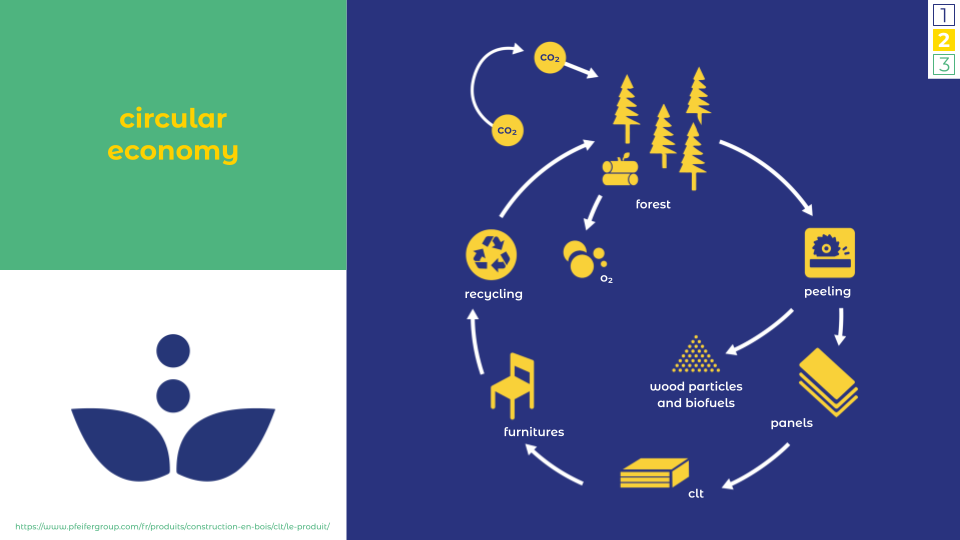
The wood goes through a short circuit. Once it has been processed into panels, it is reworked to obtain CLT. The furniture is then manufactured and can be recycled for a second life. As for the carbon footprint that can be found during delivery, for example, this is offset by the sustainably managed forests. Indeed, these forests will absorb CO2 and produce O2. Yggdrasil is thus at the heart of the circular economy.
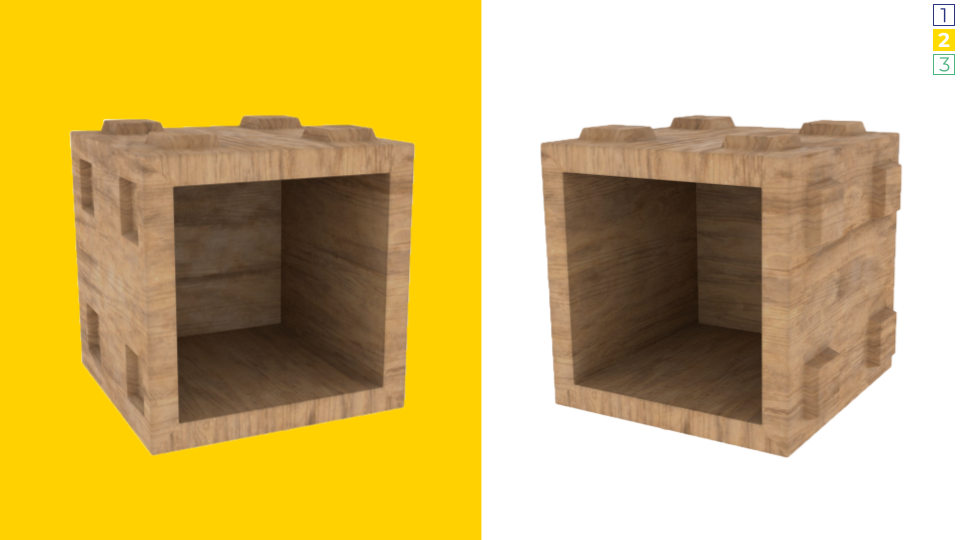
So this is what Yggdrasil furniture looks like. It is a piece that each IKEA shop will be able to produce and with the local wood of the country in which it is located. This keeps the global IKEA model in line with local production.

Thirdly, Yggdrasil is a playful and modular piece of furniture whose inspirations can be drawn from our design collection.
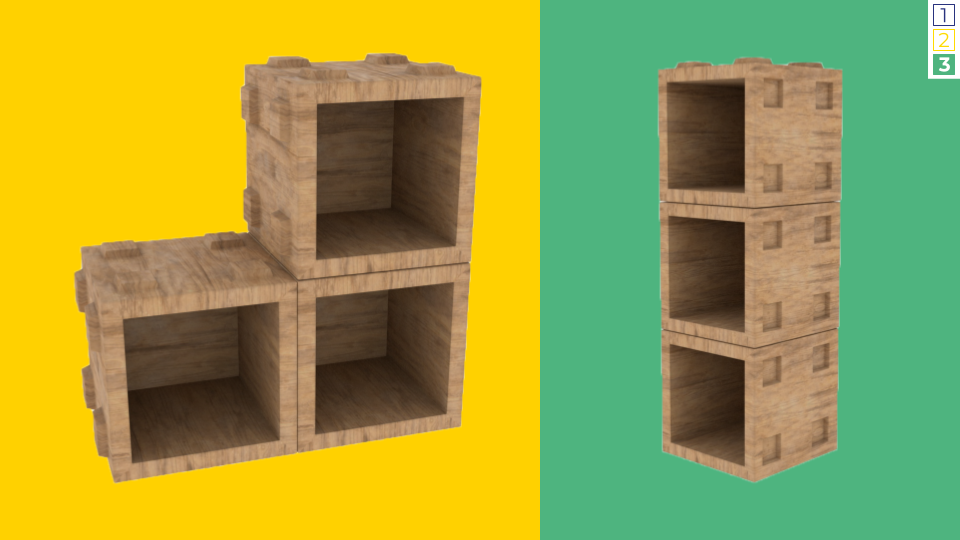
Because we know that you like to take pleasure in decorating your home, we thought of making this piece of furniture infinitely transformable, so that you can easily change from a shelf to stools, a coffee table or a TV stand, according to your needs and desires. And for those of you looking for inspiration, you can find many ideas in our designs booklet, which can be found in the Yggdrasil tab of the IKEA app and website, or on cards in shop.
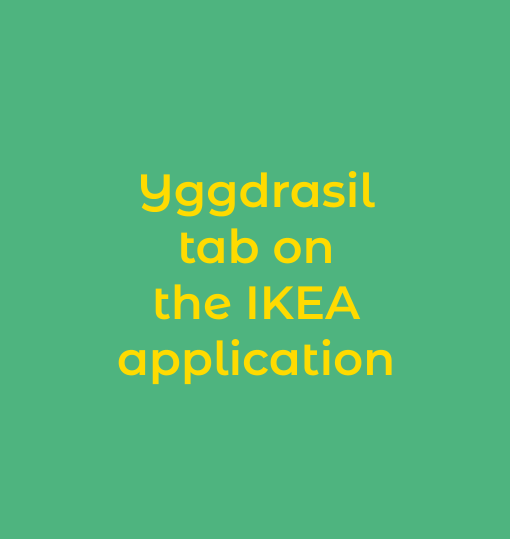
In the IKEA app, you can find the Yggdrasil tab. This tab allows you to learn more about Yggdrasil or to access the designs booklet. First of all, the "Yggdrasil story" button allows you to understand the origin of the name and the story told around the Nordic mythology. In the first part, there is information about the local wood. It is also possible to enter your address to see the partnership and the local woods you are concerned with. In the second part, we explain how Yggdrasil is a piece of furniture with a simplified production process. Finally, in the third part, we recall the playful and modular value of the furniture. In this part, it is also possible to access the designs booklet. This section provides inspiration for the users. It is possible to see the furniture from all angles, to choose the number of pieces, and to change the construction according to this number of pieces. This tab will give visibility to our new range!

Yggdrasil is therefore a project with many benefits. It is a simple process. The product goes directly from the source to the consumer. Let's take Leo who wants a shelf. IKEA, through its partner, takes wood from a sustainably managed forest, transforms it into Yggdrasil furniture in a sawmill close to the forest, IKEA collects it, and Leo has his new furniture.

Then it's a clear process. With clear and important communication about the production chain and the origin of Yggdrasil furniture, Leo knows exactly what he is buying and has all the information he needs without having to look for it.

Yggdrasil also allows the user to become an actor. Thanks to these practical and playful pieces of furniture, Leo can easily assemble and disassemble them himself according to his needs. He becomes an active participant in the Yggdrasil project and in its ecological commitment.
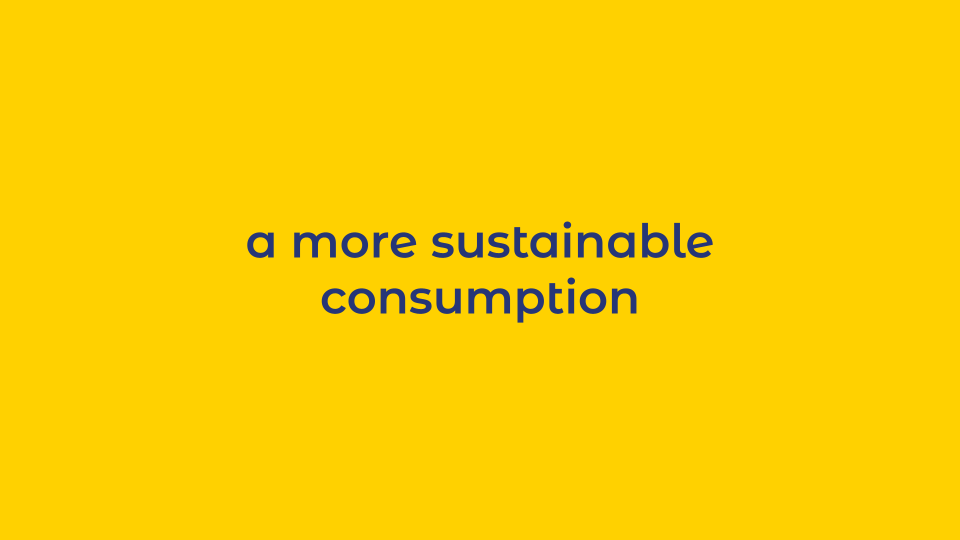
Finally, the transformable aspect of Yggdrasil furniture allows Leo to reuse it and thus to consume in a more eco-responsible way. And that's something The World Tree will thank him for!
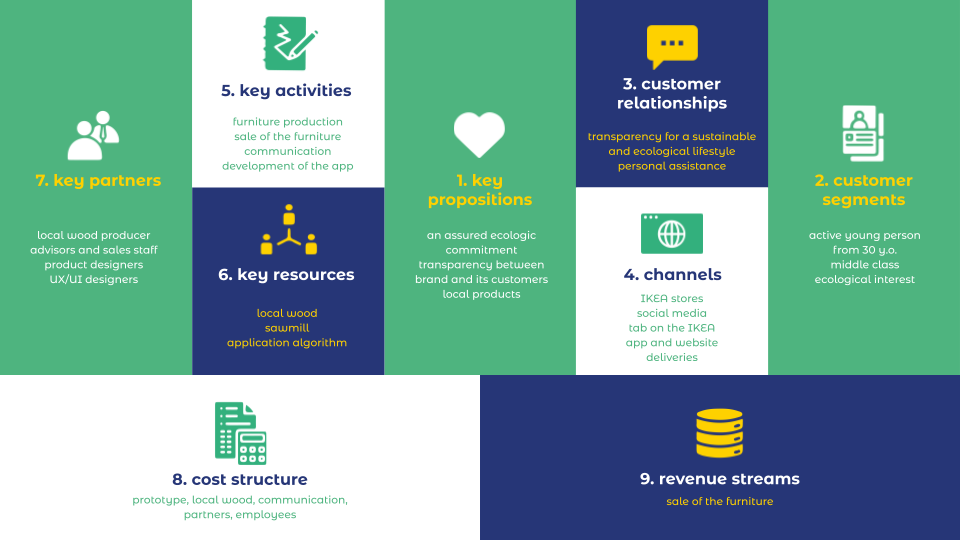
In order to give you a more global vision of the Yggdrasil project, here is our business plan in more detail. As seen above, our value proposition is therefore a commitment to ecology through local wood and more transparency between the brand and its customers. Yggdrasil has good customer relations through more transparency for a sustainable and ecological lifestyle aimed at middle class, environmentally conscious people in their 30s. Our distribution channels are IKEA shops, social networks, and a Yggdrasil tab on the IKEA app and website. Our expenses include prototyping, paying our partners to produce the furniture from local wood, communication about Yggdrasil and employee wages. Finally, our income is based on the sale of the furniture.
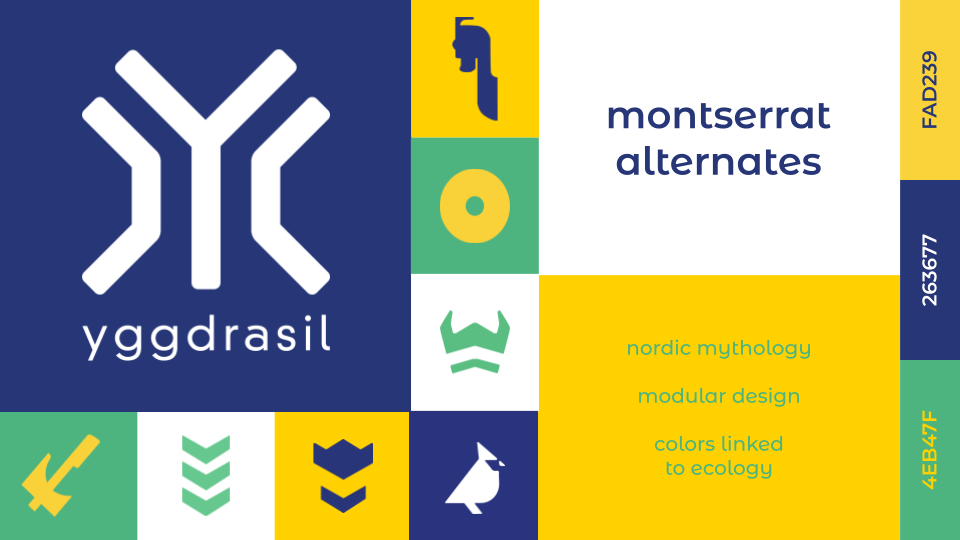
Yggdrasil has a colour scheme similar IKEA's one, with a soft green colour that inspires ecology. Its design is modular and uses shapes that evoke Nordic mythology.

